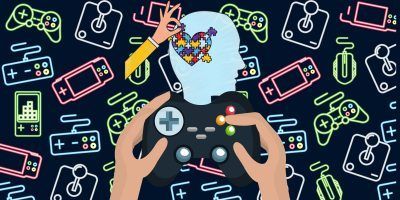
In recent years, the world of gaming has witnessed a significant rise in popularity. With a wide range of genres and platforms available, gaming has become more accessible than ever before. While many view gaming as purely entertainment, there is a growing interest in understanding the potential impact it may have on mental health. This article aims to explore the connection between gaming and mental health, shedding light on its potential benefits and risks.
The Power of Gaming
Gaming has evolved from a mere leisure activity to a dynamic medium capable of evoking strong emotions and fostering social connections. Whether it’s embarking on epic adventures in fantasy realms or engaging in intense multiplayer battles, gaming provides an immersive experience that captivates players’ minds. Studies have shown that playing video games can enhance cognitive abilities, problem-solving skills, and hand-eye coordination. Furthermore, gaming can serve as a powerful stress reliever, allowing individuals to escape from the demands of everyday life and enter a world of creativity and exploration.
The Positive Impact on Mental Health
Contrary to common misconceptions, gaming can have positive effects on mental health. Immersive and narrative-driven games have been found to enhance empathy and emotional intelligence. These games often tackle sensitive topics such as mental health, making players more aware of the struggles others face, fostering empathy and understanding.
Additionally, online multiplayer games provide a valuable avenue for social interaction, especially for individuals who may find it challenging to engage in face-to-face interactions. Building connections and friendships within gaming communities can alleviate feelings of loneliness and isolation, promoting a sense of belonging and improving overall mental well-being.
The Dark Side of Gaming
While gaming offers numerous benefits, it’s essential to recognize the potential risks to mental health. Excessive gaming, particularly when it becomes an addiction, can lead to detrimental effects. Gaming addiction can cause social isolation, neglect of responsibilities, and negatively impact academic or professional performance. Furthermore, excessive screen time can disrupt sleep patterns, leading to sleep disorders such as insomnia.
The highly competitive nature of some gaming genres can also contribute to stress, anxiety, and frustration. In individuals prone to these mental health conditions, gaming may act as a trigger, exacerbating symptoms. It is crucial to maintain balance, set boundaries, and practice responsible gaming habits to minimize these potential risks.
Dual Responsibility: Gaming Industry and Players
Both the gaming industry and players have a role in ensuring gaming remains a beneficial and enriching experience. Game developers can prioritize incorporating mental health themes and resources within their games to raise awareness and reduce stigma. Creating diverse and positive representations of characters dealing with mental health challenges can contribute to a more inclusive gaming environment.
Players, on the other hand, should prioritize self-care and understand their limits when it comes to gaming. Moderation and balance are key. Taking regular breaks, staying physically active, and maintaining offline social connections are important for overall mental well-being. Additionally, seeking professional help when gaming becomes a source of distress or interference is crucial in preserving mental health.
Conclusion
Gaming can have a significant impact on mental health, both positively and negatively. While it offers immersive experiences, cognitive benefits, and opportunities for social interaction, excessive gaming and gaming addiction can lead to adverse consequences. It is crucial to recognize the dual responsibility that lies with both players and the gaming industry in creating a safe and healthy gaming environment. By promoting moderation, balance, and awareness of mental health, gaming can continue to be a source of joy and personal growth for individuals around the world.


